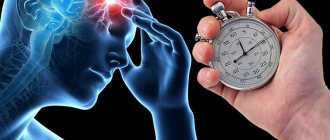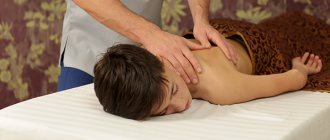In order for sleep to have its beneficial effect, we must fall asleep easily and quickly, sleep calmly and fully, and wake up alert and rested. Insufficient quantity and quality of sleep has a negative impact on our well-being, and, at the same time, can itself be a consequence of various health problems.
Poor sleep is the cause and effect of health problems
Which doctor should you consult if sleep disorders are persistent and their manifestations and consequences worry you and your loved ones? A somnologist will help you determine the cause of the problems and choose the right treatment.
Which doctor should I contact for insomnia?
In the beginning, when sleep disturbance occurs, people try to eliminate the condition on their own.
But after the body is exhausted, they come to the doctors. And most often, people do not know which doctor to contact if they have insomnia. Patients are initially referred to a general specialist – a general practitioner. He conducts diagnostic tests and sends patients to specialist doctors. Sleep disturbances appear due to pathologies in the brain, most often with systemic diseases and psychoemotional disorders. Each problem is treated separately by different specialists. Therefore, you need to know which doctor to contact for insomnia so that there is no relapse. The choice of a physician is made by a therapist after an initial examination, identifying symptoms, and conducting diagnostic tests.
Therapist
This is a general practitioner who sees all patients. During the initial appointment, the patient is examined in stages:
- collecting complaints from a person’s words;
- examination of skin surfaces, mucous membranes and oral cavity;
- prescribing laboratory tests (general clinical examination of urine and blood, blood biochemistry);
- instrumental examination methods (pressure measurement, auscultation, pulse measurement, palpation of lymph nodes);
- radiography for suspected respiratory tract disease;
- MRI, CT to identify the condition of blood vessels, nervous tissue, the presence of benign and malignant tumors.
If the cause of insomnia is fatigue or psycho-emotional disturbance, the therapist gives general recommendations:
- schedule stabilization, breaks from work to recuperate;
- activity, physical exercise;
- elimination of bad habits, medications, psychostimulants;
- relaxing massages, swimming;
- walks in the open air.
If the therapist discovers a serious cause of the disease, the patient is referred to specialist doctors.
Psychologist
At the appointment, the doctor asks the patient about concerns, finds out the area of work, his work schedule. Asks about family relationships. At each psychotherapy session, a person tells the doctor about the problems that bother him.
Methods of therapy with a psychologist:
- hypnosis;
- meditation;
- respiratory system.
Drug therapy by a psychologist is carried out only in extreme cases.
Psychiatrist
Unlike a psychologist, a psychiatrist deals with difficult problems:
- bipolar disorder;
- schizophrenia;
- drug addict;
- panic attacks.
Therapy is accompanied by the prescription of medications. The doctor prescribes sedatives, tranquilizers, and sleeping pills.
Somnologist
This is a doctor who identifies and treats primary insomnia. This is a new direction in medicine. There are no somnologists in free institutions; appointments are made at a private clinic.
If during the initial conversation with the patient the cause of insomnia is not identified, the doctor prescribes an EEG procedure during sleep. The passage of nerve impulses in the brain at night is studied.
Neurologist
In half of the cases of insomnia, the cause is neurological disorders that arise from disorders of the central or peripheral nervous system. To make a diagnosis, studies are carried out:
- electroencephalogram;
- checking nervous reflexes;
- MRI, CT.
Treatment is carried out using:
- medicines;
- massage;
- physiotherapy;
- increasing physical activity.
Most neurological disorders in people develop due to excessive nervous tension. Then therapy is carried out with the additional use of sedatives.
Manual or acupuncturist
In areas of the human body there are reflexogenic points. Nerve endings are stimulated by inserting a needle. This allows a person to relax. Using the method, systemic diseases are treated. The procedures are carried out in courses. To do this, use 10-15 sessions, after which they take a break. In some cases, even 21 sessions are required.
Other specialists
If insomnia develops due to systemic diseases, treatment is carried out by specialized doctors:
- cardiologist (cardiovascular disease);
- otolaryngologist (diseases of the ear, nose and throat);
- surgeon (removal of tumors, restoration of damaged tissue, correction of a deviated nasal septum that makes breathing difficult during sleep);
- urologist, nephrologist (frequent calls to urinate in chronic infectious and inflammatory diseases of the urinary system disturb sleep).
When the primary disease is completely cured, insomnia will disappear on its own, without the need for additional use of medications.
Somnologist
It is important not only to determine which doctor to see for insomnia. You need to choose a medical institution - public or private. The former may not have somnologists, as well as the necessary medications and equipment.
Recommended treatment volume:
- Physiotherapeutic techniques , namely, magnetic therapy, darsonvalization of the head and collar area.
- Electrosleep is the effect of low frequency currents on the nervous system.
- Reflexology is an effect on certain points of the body.
- The course of sleeping pills is from 3 to 14 days.
- Relaxing, soothing massage .
Somnologists are accepted at large medical centers (private). Specialists of this profile carefully approach the examination and prescribe comprehensive treatment.
Which doctor should I contact for insomnia? Causes and methods of treating pathology
Insomnia (lat. insomnia) – poor quality or complete absence of sleep. A person suffering from insomnia cannot sleep for a long time, wakes up at night, has problems waking up in the morning, feels exhausted throughout the day and loses ability to work.
The patient loses the ability to concentrate on the tasks being performed, is distracted, does not perceive information well, loses appetite, or, conversely, begins to suffer from overeating. Often the disease is accompanied by increased nervousness or, conversely, depression. Symptoms may alternate.
Insomnia is divided into three types:
- chronic
- short-term
- transient
The reasons for the appearance may be various factors depending on the type:
Insomnia
- Transient insomnia can be caused by a stressful situation, nervous shock or excessive fatigue. It comes on suddenly, but goes away as soon as the situation stabilizes. It is the easiest type of violation, as it is caused by external factors. Short-term insomnia can be triggered by any everyday problem, an unpleasant situation at work, a conflict with loved ones, a move, an exam, etc. As soon as the irritating factor disappears, insomnia goes away along with it, leaving no complications in the person’s mental state.
- Short-term insomnia lasts several nights a month and can cause the development of chronic depression. It also occurs due to everyday problems, however, it lasts longer than the transient one and is constantly repeated. This disease can be triggered by metabolic disorders or diseases such as ulcers, gastritis, pneumonia, joint diseases and many others. For short-term insomnia, treatment should be started, as it can lead to asthenia and even depression. Fortunately, it is treated quite simply; there are many folk remedies that can help quickly solve this problem. Playing sports or walking daily for 30-40 minutes helps.
- Chronic insomnia is the most severe type of disease that requires serious comprehensive treatment. Chronic insomnia can be associated with neurosis, mental and chronic diseases, dementia (dementia in old age), increased anxiety and much more. The cause of depression should be determined privately by the attending physician.
Which doctor should I contact for insomnia?
Somnology
A somnologist deals with sleep problems. Somnology is a science that deals with the study of sleep, its disorders and treatment methods. Sleep may be too short, or, conversely, too long. Both conditions are abnormal and must be treated.
The somnologist must first determine the causes of insomnia and find out what caused it. Insomnia caused by depression or asthenia should be treated accompanied by a psychologist or psychiatrist (depending on the severity of the condition).
Sometimes drug treatment is required because the brain of a person suffering from insomnia lacks certain substances or neurometabolism is impaired. The new generation of drugs are not addictive; their action is aimed at restoring brain function.
If the cause of insomnia is a serious physical illness, then an examination by a therapist is scheduled, who will help determine the root cause of the illness.
Some practical tips
If you begin to notice manifestations of insomnia, you should listen more carefully to your body. Perhaps the body is just tired and needs to relax. Fatigue may not always be triggered by stressful situations.
A routine lifestyle exhausts the nervous system, not giving it the opportunity to relax. Try to spend more time outdoors and not in front of the TV or computer. You should always go to bed and wake up at the same time, even on weekends.
Give up bad habits: tobacco and alcohol. Providing a temporary relaxation effect, they exhaust the nervous system. Watch your diet, give up processed foods and heavy foods. Make a choice in favor of vegetables and fruits, white meat, dairy products. The last meal should be at least 2 hours before bedtime.
Following these simple rules will help a person avoid insomnia.
Rehabilitation and lifestyle restoration
Did you manage to get rid of insomnia with the help of competent treatment? In this case, it is important to regularly carry out prevention and follow a daily routine. During rehabilitation, it is better to go to a sanatorium or spend this time in a special medical facility under the supervision of specialists. You should change your lifestyle:
- give up alcohol, drugs, smoking;
- go to bed at the same time every day;
- do exercises or go to the gym;
- do massages;
- often relax in the fresh air.
Provide all conditions for a restful sleep; the room should be dark and ventilated, the air in it should not be too warm. Before going to the “kingdom of Morpheus,” read a book and take a shower.
Why do you need healthy sleep?
A person needs sleep to restore the physical and psychological strength of the body. It occurs cyclically almost every 24 hours and these cycles are called the circadian rhythm. The circadian rhythm is regulated by the production of melatonin. Melatonin is a pituitary hormone that is produced only in complete darkness. Therefore, an important condition for healthy and long sleep is the illumination of the room. Consequently, failure to adhere to the schedule, sleeping during the day, or working at night can cause circadian rhythm disturbances and cause insomnia.
Inadequate sleep caused by insomnia worsens metabolism and over time can cause obesity and then type 2 diabetes, but this is in the long term. In the short term, there is a risk of dying from a myocardial infarction or stroke without waiting for diabetes
Since lack of sleep or lack of sleep primarily affects the cardiovascular system, you need to treat this problem with due attention
How an osteopath treats insomnia
Among the methods of osteopathy that help in the fight against insomnia are direct and indirect techniques to eliminate the tone of ligaments, fascia and muscles, which is often a reaction of organs to bruise, injury or displacement of the vertebrae.
An osteopath uses methods of inhibition, stretching, traction, twisting, influencing tissue. The spasm goes away, and all organs and parts of the body return to their usual position. The swelling subsides, the pain decreases, and all this contributes to the normalization of sleep patterns. The organs begin to be supplied with blood as expected, irritants are eliminated.
The patient may feel slightly dizzy after an osteopathy session, but this is a normal reaction of the body.
Visiting a therapist and neurologist
To understand which doctor cures insomnia, you need to carefully evaluate the type of activity of each doctor. As you visit the therapist and complain to him about poor quality of sleep, he first of all asks the patient what is involved in going to sleep at night. This can be done:
- noise from households and (or) neighbors;
- taking certain types of tonics;
- taking medications, the side effects of which are considered to be insomnia.
If the doctor is a true professional, he will first try to cure the disease without prescribing medications. After all, sleeping pills from pharmacy counters do not return the patient to full and healthy sleep, but only have a depressing effect on a person’s consciousness. Therefore, waking up in the morning after taking sleeping pills, the patient will not feel better.
Before visiting a doctor, you will need to prepare for him to prescribe tests and additional examinations that will help identify the causes of insomnia, as well as assess the person’s general condition. If this is not done, there will be no result from therapy.
If such a condition was caused by taking medications, the doctor will most likely cancel them or replace them with similar compounds that have a more gentle effect on health.
If the doctor finds the cause of insomnia, but cannot completely cure it, he will give a referral to a specialist with a narrower profile, for example, a neurologist.
The neurologist accepts those patients who have been diagnosed with:
- Parkinson's disease;
- narcolepsy;
- problems related to blood circulation in the brain;
- history of stroke;
- dementia that was acquired during life;
- high pressure inside the skull.
If the cause of disturbed sleep is accurately identified, treatment of insomnia will be quick and quite successful.
It is prohibited to take sleeping pills without a doctor's indication, since if a person has sleep problems caused by hormonal drugs, any sleeping pills will not be able to provide adequate assistance.
If a person suffers from diseases of the brain or blood vessels, sleeping pills will lead to a deterioration in memory.
A neurologist will prescribe drugs to a patient only after making a correct diagnosis - if the disease that has caused deterioration in sleep quality falls within his specialty, the doctor will prescribe a comprehensive treatment. Its correct implementation will help restore healthy and complete sleep in 2-4 weeks.
Features of insomnia
Depending on how long the symptoms of the disease persist, insomnia is divided into episodic, short-term and chronic. The first form can occur in any person, most often it occurs under the influence of stress, changes in daily routine, or major changes in life. The clinical picture remains no more than a week. With short-term insomnia, signs of pathology last from 1 to 3 weeks. The chronic form is diagnosed if symptoms persist for more than 3 weeks.
Common causes of sleep problems:
- somatic diseases - damage to the brain, endocrine glands, oncology. In principle, any illness can cause insomnia;
- hormonal imbalances as a result of pathological or physiological changes in the body;
- violation of the daily routine, ignoring the optimal routine and rules for organizing sleep;
- taking a number of medications or stopping them;
- alcohol, drug, drug addiction, as well as withdrawal syndrome against their background;
- experienced acute shock or chronic stress;
- neurological or mental disorders.
Taking medications can cause sleep problems.
Doctors do not specify the time period during which it is necessary to self-medicate or make an appointment with a specialist. Everything is individual here; the body’s reaction to a lack of rest is of great importance. If after 2-3 days the condition worsens, and the actions taken do not give any positive effect, you should visit your local doctor. The therapist can judge the general condition of the body; he is able to identify a number of provocateurs of insomnia. Based on the results of the basic examination, he will draw up a conclusion and, if necessary, refer you to a specialist doctor.
Treatment of insomnia
At the initial stage of the disease, you should not resort to self-medication by taking medications without a doctor’s prescription.
This can worsen the situation, cause drug dependence, which will complicate the course of the disease and transfer it to the chronic phase. Restoring brain functions falls within the competence of a psychiatrist-psychotherapist. Only a specialist can correctly understand the true causes of insomnia and prescribe adequate treatment.
Do not put off visiting a professional psychotherapist “for later” - this can lead to irreversible mental health problems.
We do not believe in miracles and easy results in treating brain disorders. We fight together for your healthy life. The desire and willpower of a person, as well as the help of people close to him, are very important.
Insomnia is known to many, but very few see it as a serious problem that needs to be addressed by a specialist. Poor sleep not only causes moral discomfort, but can also cause significant harm to the health of the sleep-deprived.
Violations can also be caused by the use of various psychoactive substances. In this case, therapy should be carried out in a drug treatment clinic.
Insomnia is a sleep disorder that is defined by both deterioration in sleep quality and shortness of sleep. Sleep, as a natural process that replenishes our body with the necessary energy, does not tolerate when little attention is paid to it. Your body immediately reacts with drowsiness, irritability, decreased performance, and a weakened immune system.
Manifestations of insomnia
- prolonged falling asleep, difficulty falling asleep;
- frequent awakening;
- getting up early;
- malaise;
- lack of a full night's sleep;
- depression.
Main causes of chronic sleep deprivation
- prolonged depression;
- diseases of the nervous system;
- asthma;
- overwork;
- stress;
- heart failure;
- alcohol and drug abuse;
- kidney diseases;
- arthritis;
- encephalitis.
If all of the above symptoms apply to you, then you need to take proper measures to eliminate this problem. The problem of insomnia itself can develop for numerous reasons. The epicenter of the development of insomnia can be a number of mental and somatic diseases.
Insomnia and the social environment
Often, social factors also influence the quality and duration of sleep. Self-doubt, inferiority complexes, lack of confidence in the future - all this provokes a violation of the structure of the sleep process.
Distortion of normal sleep is not only a problem of an internal psychological nature, but also the fault of technological progress
All inventions of mankind - television, computer, Internet, mobile phone - pay due attention to human consciousness. These factors prevent him from relaxing properly
Treatment of insomnia in endogenous diseases
With endogenous diseases, despite the fact that the mechanism of the disease is known, the cause of the disease is not always clear to many doctors, and in this case they are not able to provide the correct treatment for insomnia. Therefore, a specialist is needed who has the ability to qualitatively diagnose such conditions - a highly qualified psychotherapist.
For various types of endogenous diseases, the main cause lies in disturbances in the metabolic processes of the brain. Therefore, the main means of influencing the cause will be complex neurometabolic therapy based on high-tech methods of restorative medicine. Psychotherapeutic influence, when treating insomnia of this type, in the first stages will negatively affect the result. It is possible to effectively get rid of insomnia due to endogenous disorders only by taking into account accurate data on disrupted brain processes.
In these cases, treatment of insomnia is taken under the special supervision of an experienced doctor and requires specialized medical care. However, if the treatment is carried out correctly and the patient follows all the instructions of the attending physician, treatment of insomnia due to endogenous disorders is successful and in a short time.
Treatment of insomnia with asthenia
Asthenia is the most common phenomenon in today's world, so doctors most often encounter the problem of treating insomnia in these disorders of the nervous system. In such cases, treatment of insomnia must be carried out by completely different means. Unfortunately, these disorders are very insidious and difficult to correctly recognize by most doctors. In the initial stages of the formation and development of this mental disorder, it is very well treated, and with it, the treatment of insomnia occurs not only quickly, but also quickly.
The symptoms that are characteristic of this condition are a universal protective reaction of the brain and can be observed in various diseases (mental and internal organs). And also in people who are not sick (with overwork, malnutrition, prolonged stress). In addition to disturbed sleep, it can manifest itself as poor general health, fatigue, irritability, anxiety, absent-mindedness, and headaches. In this case, treatment of insomnia should be aimed at restoring nervous activity. This is achieved by using specific medications, physiotherapy, and using a simple diet and daily routine.
The insidiousness of these disorders lies in the complications that can affect the midline structures of the brain and disrupt the biological processes of the central nervous system.
Treatment methods
If a disease interferes with a normal lifestyle and causes discomfort, it must be treated. The recovery method must be determined by the doctor. If the cause of the problem is a minor factor, it is enough to change the daily schedule and stick to it for several weeks. If this does not help, the specialist will select special medications. You should not use them without a doctor’s prescription, as you may harm your own body.
In order to get rid of chronic insomnia, sometimes there are not enough drugs, you need to eliminate the causes and factors that could cause it. Therefore, some doctors prescribe a series of physical exercises and massages in parallel with the main treatment. In any case, it is important to listen to the recommendations of your doctor and follow them regularly.
Causes of insomnia
There are many reasons why sleep disturbance occurs.
- Biorhythm disturbance. The pineal gland is located in the human brain. It produces hormonal substances, one of which is melatonin. It is responsible for day and night rhythms. If it is produced in insufficient quantities, the patient has difficulty falling asleep.
- Presence of irritants. Sleep is affected by bright light, loud noises, and excessively low or high ambient temperatures.
- Sudden sleep apnea due to snoring.
- Stress. Violations of a person’s psycho-emotional background lead to changes in hormonal levels. An increased amount of adrenaline is released into the blood, leading to overexcitation.
- Pain in acute and chronic diseases. Pulpitis, wounds on the surface of the skin, gastrointestinal infections, conditions after surgery, ARVI with elevated body temperature can lead to insomnia.
- Eliminating bad habits. If the patient has been using alcohol, drugs, or nicotine for a long time, abrupt withdrawal of these substances causes poor health and inability to sleep.
- Mental illness, depression, anxiety.
- Use of medications: corticosteroids, adrenergic blockers, chondroitin and other drugs.
- Primary sleep disorder. In early childhood (up to 3 years), sleep disturbances occur for no apparent reason. In adults, insomnia occurs due to disorders of the brain and circadian rhythm. People cannot fall asleep with increased muscle tone and involuntary movements (trembling legs).
Causes of sleep disturbances
Experts distinguish between symptomatic and somatic causes of sleep disturbance. The most common are:
- stressful lifestyle and emotional stress,
- chronic pain caused by any disease or temporary condition of the body,
- disturbances in heart rhythm,
- hormonal diseases or temporary hormonal imbalances,
- heartburn and problems with the gastrointestinal tract,
- night cramps,
- exposure to chemicals and drugs, consumption of alcohol and nicotine, energy drinks,
- difficulty breathing at night due to trauma to the nasal septum or the formation of polyps,
- disruptions in sleep and wakefulness due to working night shifts or frequent changes in time zones.
A separate factor influencing the development of pathology is depressive states. A large dose of cortisol is released into the body, which disrupts the quality of sleep. Mental disorders, increased anxiety, hyperactivity, schizophrenia, and neurological diseases of the brain or central nervous system also have a significant impact on a person’s sleep.
What causes of insomnia can an osteopath help with?
In a situation where problems with night rest were caused by a somatic illness, an osteopathic specialist will direct efforts to restore the functioning of the impaired organ. It will help increase lymph flow and blood flow, eliminate muscle tension and pinched nerves. Often this is what causes the patient to wake up at night in pain.
If the cause of loss of sleep is hidden in emotional overstrain, osteopathic methods will help the patient relax and eliminate muscle tone. Already during the procedure, many patients feel relaxed and sleep right on the massage table. This is a significant argument indicating the high effectiveness of osteopathy in relieving tension.
The doctor will also help with insomnia diagnosed due to central nervous system disorders. Using a specific technique, a specialist will help improve the functioning of the brain. This especially helps older people. The activity of the hypothalamus decreases, the secretion of melatonin slows down, hence the sleep becomes shallow.
What does the doctor prescribe
Depending on the identified cause of insomnia, the attending physician prescribes a specific treatment regimen for the patient. The therapeutic course may contain both medications and various techniques for correcting sleep disorders.
- Sleeping pills and sedatives.
Doctors try not to immediately prescribe powerful drugs that have a direct hypnotic effect.
They are quickly addictive and do not eliminate the cause of insomnia. Patients are often prescribed mild sedatives that can relieve insomnia. When a person begins to regain his own proper sleep, the doctor gradually discontinues drug therapy. Recently, the drugs Sonylux and DreamZzz appeared on the pharmaceutical market. They effectively streamline your night's rest and significantly reduce the time spent falling asleep. In addition, they performed well against depression. These drugs help overcome anxiety, stress and chronic fatigue. They also protect against excessive nervous tension and improve mood.
"Sonylux" and DreamZzz are natural medicines. The manufacturer made them from natural ingredients (Alishan gaba tea, lofant, a collection of 32 medicinal plants and beaver stream).
O and DreamZzz not only cope well with insomnia, but also have a beneficial effect on the body as a whole. As a result, a person gets good sleep, gets rid of a melancholic mood and improves the nervous system.
To say goodbye to insomnia and depression, you should take Sonilyux or DreamZzz at least 2 times a day - one measuring spoon at a time.
- Psychotherapy
Sometimes it remains the only method of treating insomnia if sleep disturbances are provoked by stress, neurosis or increased anxiety. If necessary, psychotherapeutic sessions are supplemented with mild sedatives.
- Treatment of diseases of organs and their systems.
If insomnia occurs as a result of dysfunction of the endocrine, nervous and other systems, a complex effect on the body is necessary. Sometimes medication is included in the course of treatment to restore normal sleep.
https://youtube.com/watch?v=jcRhQd_5Nh8
Treatment results
Chronic insomnia can last more than several years, as a result of which the patient may face problems such as:
- excess weight;
- heart disease;
- gastritis;
- diabetes;
- high blood pressure;
- mental illness.
Insomnia should be treated and it is important not to do it yourself. As a result of a competent recovery program, within a few days you will be able to forget about the problem and sleep at night again. The main thing is to complete the course of treatment completely and move on to the rehabilitation process.
Visiting a therapist and neurologist
To understand which doctor cures insomnia, you need to carefully evaluate the type of activity of each doctor. As you visit the therapist and complain to him about poor quality of sleep, he first of all asks the patient what is involved in going to sleep at night. This can be done:
- noise from households and (or) neighbors;
- taking certain types of tonics;
- taking medications, the side effects of which are considered to be insomnia.
Before visiting a doctor, you will need to prepare for him to prescribe tests and additional examinations that will help identify the causes of insomnia, as well as assess the person’s general condition. If this is not done, there will be no result from therapy.
If such a condition was caused by taking medications, the doctor will most likely cancel them or replace them with similar compounds that have a more gentle effect on health.
If the doctor finds the cause of insomnia, but cannot completely cure it, he will give a referral to a specialist with a narrower profile, for example, a neurologist.
The neurologist accepts those patients who have been diagnosed with:
- Parkinson's disease;
- narcolepsy;
- problems related to blood circulation in the brain;
- history of stroke;
- dementia that was acquired during life;
- high pressure inside the skull.
If the cause of disturbed sleep is accurately identified, treatment of insomnia will be quick and quite successful.
If a person suffers from diseases of the brain or blood vessels, sleeping pills will lead to a deterioration in memory.
A neurologist will prescribe drugs to a patient only after making a correct diagnosis - if the disease that has caused deterioration in sleep quality falls within his specialty, the doctor will prescribe a comprehensive treatment. Its correct implementation will help restore healthy and complete sleep in 2-4 weeks.
To establish the correct diagnosis, the doctor will prescribe the patient polysomnography - this is a modern study in which a special instrument records sleep parameters when the patient is asleep.
Since narcolepsy cannot be completely cured, comprehensive treatment is aimed at reducing the signs of the disease. During its course, the doctor’s duty is to normalize the quality of sleep at the maximum level. Of course, this is not always possible to do fully - in this case, the somnologist will prescribe medications to the patient that stimulate the central nervous system.
Such drugs will not allow a person to suddenly fall asleep during the daytime. And before going to bed, the patient will need to drink a gentle sleeping pill, which will allow the person to fall asleep quickly and soundly. Sometimes somnologists prescribe behavioral therapy to patients to fully cure insomnia.
However, this is not so - a psychologist will be able to correctly identify the cause of insomnia, as well as understand the psycho-emotional state of the patient. If insomnia occurs in an advanced form, the patient will need to undergo hypnoanalysis to carefully understand the person’s condition.
If a person develops insomnia due to a mental disorder, which is considered a common problem of the modern generation, patients will need to see a psychiatrist. After diagnosis, he will prescribe the following types of medications to the patient:
- neuroleptics;
- sedatives;
- antidepressants.
It is prohibited to take such medications on your own, since only a doctor can choose the correct dosage of a particular drug, as well as choose the safest and most effective treatment.
In the event that insomnia was caused by depression or stress, the doctor prescribes medications to help the person get enough sleep, after which he sends him to a psychologist to fully solve the problem.
Manual or acupuncturist
A doctor in this specialty uses techniques related to alternative medicine. Reflexology, massage, and acupuncture are used.
There are rules that do not depend on the decision of which doctor to go to in order to get rid of insomnia. You cannot change or interrupt the prescribed course of therapy. Before visiting the doctor and during treatment, you should stop drinking caffeinated drinks and alcohol 3 hours before bedtime.
Advice! It is recommended to avoid physical and mental overexertion and stress.
Insomnia requires treatment if the sleep disorder does not go away within 4 weeks. A patient who has no idea which doctor to contact hesitates to visit a medical facility.
Delay is dangerous: insomnia becomes chronic and complications develop. Only early treatment and following all the recommendations of specialists will allow you to once again experience the “taste” of “the sweetest dish on earthly feast” - healthy and sound sleep.
General recommendations
Each of the specialists mentioned, in addition to specific treatment, will give the patient general recommendations regarding behavior in everyday life:
- Do not smoke before bed, because the stimulant effect of nicotine interferes with normal sleep and prevents you from falling asleep.
- Do not drink alcohol before bed - it affects the deep sleep phases.
- Do not abuse coffee and caffeine-containing products (cola, tea and chocolate). Since caffeine remains in the body for at least 12 hours, it is recommended to consume such products only in the first half of the day or not at all.
- Do not overeat shortly before bedtime - a heavy stomach prevents you from falling asleep. If you want to have a snack, it is better to drink a glass of warm milk or eat 1 tsp. honey
- The bedroom should be quiet and dark. If noise from behind the wall bothers you, you can try using earplugs, but some people cannot fall asleep precisely because of the sensation of a foreign body in their ears.
- Before turning off the lights, it is better to read for a few minutes until you feel drowsy.
- Avoid watching horror films, thrillers and melodramas that cause anxiety in the evening.
Usually it takes at least 3 months to normalize sleep, especially in the case of insomnia due to stress. If a person has been weakening his nervous system for several years, then he will not be able to cope with the problem in a week.
Type
Factors of insomnia
To cure a disease, it is important to know what causes it. Dream disorder can occur due to mental, emotional, physical reasons and have an acute and chronic course
It happens that insomnia develops due to overexertion during the day, drinking large amounts of coffee or energy drinks.
Psychogenic causes
Most often, when a patient complains of insomnia, the problem is of psychogenic origin. Insomnia is caused by:
- emotional excitement;
- stress;
- state of anxiety;
- neuroses;
- depression.
Typical situations in which a violation occurs include:
overstrain on an emotional level due to a busy day or an upcoming important event; anxiety about not falling asleep - if you force the body to sleep, the chances of falling asleep are minimal; nightmares - with frequent dreams of horror films, on a subconscious level there is no desire to sleep, so as not to see them again.
Problems with dreams may occur due to mental illness (depression). In this case, you should immediately consult an insomnia doctor to make a diagnosis and prescribe the required treatment.
Failure in the respiratory system
A fairly common phenomenon is sleep apnea, which is characterized by repeated cessation of breathing during dreaming. Similar cessations can be observed when a person snores while sleeping. The snoring stops at a certain moment, becomes quiet, after which the patient snores and changes position.
During sleep, human muscles relax. This also applies to the throat apparatus. When the tissues in the back of the throat relax, the breathing pathways are blocked, followed by blockage of air. A fragment of respiratory arrest does not last long, no more than 10 seconds, but more than 500 similar episodes can occur per night.
Basically, the patient does not notice the interruption in breathing and does not awaken. Sometimes he gets up in the middle of the night, the quality of sleep is lost, rest becomes intermittent, and he cannot get enough sleep and gain strength.
Somatic ailments
Insomnia can be caused by somatic diseases. In this case, the disorder refers to a secondary manifestation, which is not an independent problem, but a sign of a somatic or mental illness.
The main cause of insomnia in pathology is pain. Any severe pain will make it difficult to sleep. In addition, sleep may be interfered with by:
- cough;
- arrhythmia;
- nausea;
- itchy skin.
List of somatic diseases observed in insomnia.
- Hiatal hernia. Painful sensations are provoked by a late dinner, food that causes flatulence and appears immediately after going to bed.
- Stomach ulcer – pain develops after 3 hours of rest, close to morning.
- Angina pectoris – the patient does not sleep due to pain and heaviness in the heart, which is aggravated by lying on his back. The syndrome results in repeated risings during the night.
- Heart failure is the reason for waking up suffocated. The symptom is typical for people who suffer from hypertension, heart defects, and coronary artery disease.
- With most diseases, frequent urination is possible, sometimes at night.
- Thyrotoxicosis.
- Feverish conditions.
Domestic reasons and lifestyle
The appearance of insomnia can be caused by everyday problems, which include:
- violation of recreational hygiene rules;
- change in biological rhythm;
- late eating;
- drinking coffee and other tonic drinks;
- drinking alcohol;
- lack of employment during the day.
Hygiene is understood as a set of rules that promote healthy rest. Rest disorders can appear due to noise and light. It is impossible to sleep on an uncomfortable bed, poorly chosen pajamas, a cold or hot blanket, or high or low temperature.
If you spend the whole day in bed without even sleeping, then the problem of insomnia at night is guaranteed. With a lifestyle that favors rest and quiet, constant sleep disorders will undoubtedly begin, and then the feeling of wakefulness will be absent.










